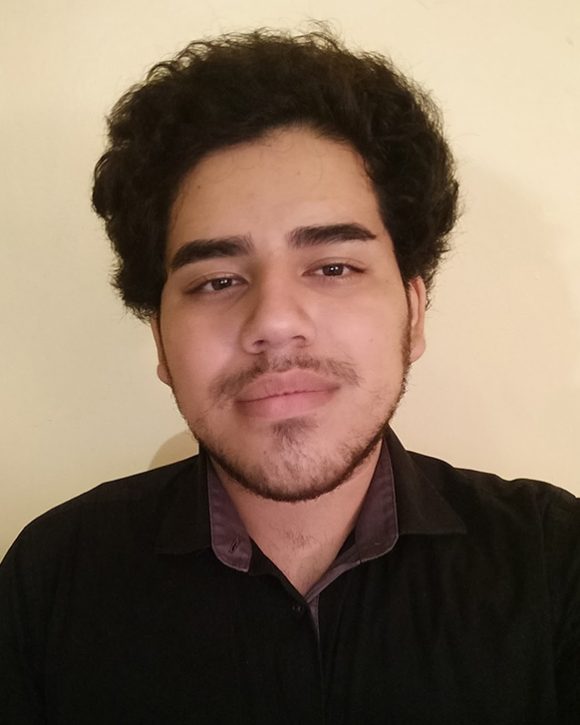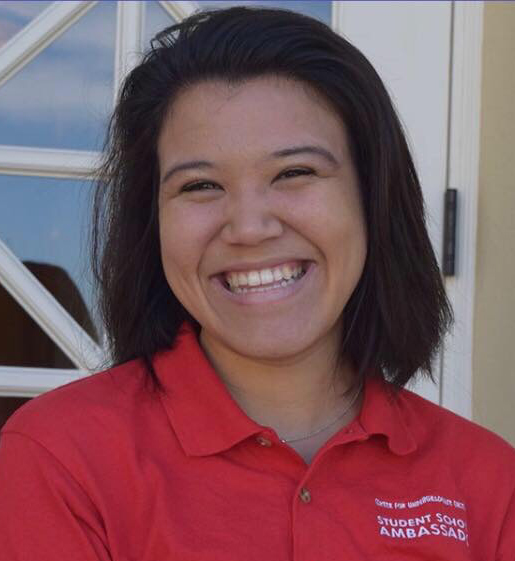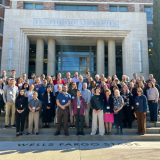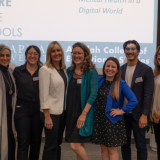
A Movement to Reshape Education 4th Annual Education and Ethnic Studies Summit
April 5, 2019
On Saturday, April 27, Chapman will be hosting its 4th Annual Education and Ethnic Studies Summit with the theme Ethnic Studies Community Movements: From Resistance to Policy. Featuring a full day of keynote speakers, interactive workshops, performances, and artwork, the summit will explore the power of communities as well as strategies to advance the Ethnic Studies movement by bridging the gap between advocacy and sustained educational policy.

Daniel Leon-Barranco ’22
To explore the background of organizing this massive event, we interviewed Miguel Zavala, Ph.D., Associate Professor in the Attallah College of Educational Studies, who specializes in action-research, decolonizing methodologies, ethnographies of learning, and qualitative research. We also talked with two of his Ethnic Studies Activism (LEAD 384) students who are members of the Ethnic Studies Summit organizing committee: Daniel Leon-Barranco, a first-year Chapman student majoring in Psychology and minoring in Latinx/Latin American Studies and Leadership Studies, and Jacky Dang, a current third-year student double majoring in Peace Studies and Screenwriting with a minor in Africana Studies. Students Daniel Leon-Barranco and Jacky Dang share what it means to them to take part in the planning of this historic event, and founder Dr. Miguel Zavala describes the significance and hopeful future of this movement.
What does it mean to you to be involved in the planning of the Ethnic Studies Summit? In what ways have you been involved?

Jacky Dang ’20
Jacky: Last year I was an attendee, and it changed the course of my career. What the Ethnic Studies Summit means to me is that I, as a person of color here at Chapman, sometimes feel like I am “othered.” At this conference, I was able to find people and workshops that spoke to me, and having that space to be able to freely talk about myself without feeling judgement is so important.
I work on the workshop committee, where we read the workshops that people submit, and we create the guidelines for it. I also work along with the Africana Studies self-design minor, so I helped push for a workshop for that. I am also working with the youth center at Orange to help promote more children’s artwork at the Ethnic Studies Summit. I think it is so important to have kids connect with their identities so young. I never had that opportunity to connect with my identity until I was 20, so being able to give the kids the opportunity to see how their lives are affected, but also have positive outcomes because of who they are, is so important.
Who are some of the guest speakers you have reached out to during the planning process?
Daniel: The guest speakers have been with some class lecturers who have been in my Latinx courses. I have reached out to Dr. Claudia Lopez from Cal State Long Beach and filmmaker Sandra Robbie. I invited them to either join us as attendees or to conduct a workshop. I was able to get Sandra Robbie to potentially hold a tour during that time for people who want to explore the city more and know the history of it. She might also give a guest lecture on the Mendez v. Westminster case.
What has been one of your greatest achievements throughout the planning process?
Jacky: My biggest achievement is being able to combine my passion with my coursework. My passion involves having more diversity within education. I am the student co-chair for the Curriculum Task Force for the Chapman Diversity Project and the student assistant for the Office of Diversity and Inclusion. I am working really hard with the Africana Studies minor in order to get that. But my goal before I graduate is to start the process for an Asian American Studies minor. It’s so important to me to be able to have my work combined with my volunteer experience.
What personal significance does this event have for you?
Daniel: Because the Ethnic Studies activism is a series of movements, I think it helps me to become a part of a bigger whole. It adds meaning to what I do rather than just saying “Oh, it’s just here at Chapman, and I’m just working at this event.” It nurtures my sense of self.
We’re trying to raise awareness for ethnic rights and the importance of Ethnic Studies in the high school curriculum because that’s what we’re pushing for. We’re hoping that people understand the value of it and the value of other knowledge that isn’t Eurocentric.

Dr. Miguel Zavala
What is the significance of the theme, “Ethnic Studies Community Movements: From Resistance to Policy”?
Zavala: Initially, we were not thinking in the plural form of “movements”; we were thinking of one movement. But somebody brought that up in the collective dialogue, and as it emerged, it was important to recognize the place-based character and nature of Ethnic Studies. Its curriculum is place-based, meaning it’s about people and places. It’s not about universalizing or standardizing a curriculum or an experience.
I think we’re at a juncture right now where there’s a lot of gains that have been made with curriculum development. But what we’re not seeing is the connection between moving from the multiple forms of resistance to policy, and I think we’re in the season to think about how even Chapman can help contribute to policy-making in Orange County and in the state of California.
What personal significance or importance does this event hold for you?
Zavala: For me, it’s about identity, and often identity gets minimized—in particular, in spaces of activism or in movement-building. It gets minimized in the rhetoric of, “Well, that’s just identity politics.” What I would say is, no, it is about reclaiming our humanity, and that’s what the Ethnic Studies Summit means for me. It’s a space where I, Miguel Zavala, where I am situated now, can sit back, reflect, re-root, and think about where I come from in a serious way that’s going to enable me to be better seeded, planted, or—like a tree—rooted in who I am so that I can therefore do the work that I do, like teacher education. I have become a better teacher educator in and through co-organizing and learning from others in the summit.
What do you hope that people will take away from attending this event?
Zavala: I think one thing is that they come with an ethos towards learning, not in a purely cognitive way but that we’re open. We come with open hearts and minds into this space, and that’s going to allow them to experience what I’m talking about on a microscale. At the end of the day, people will feel like, “There’s something that happened here that was transformative for me,” and that could lead to something more.
The other part is that we re-energize ourselves toward movement-building. We need to step back, we need to heal, and we need to build solidarity. For some students, they might experience for once what education could be that’s liberatory. For them, that’s an important experience because then they go back into their schools and they say, “I’ve been saying this is okay, but no, it’s not.” We’ve created a really productive tension. I think that through that self-transformation, there’s learning at the center.
We’re also not here to prescribe. Sometimes, people see participants as instruments into some other goal that they’ve prescribed for others. That’s a total violation of the ethos and the spirit of Ethnic Studies, and it even goes against the question of rehumanization. It’s really what people are going to take from it, but if what emerges toward the end of the day is a group of folks who want to commit to something different and more beyond the summit, then I think we attained what we wanted and beyond. What that will lead to, I don’t know yet, but that’s the beauty of it.
We don’t want to control it; we just want to see where it will go.
This article is an excerpt from the Attallah College Undergraduate Student Newsletter.
Nicole Williams is a third-year Integrated Educational Studies (Teaching and Learning in the Community Emphasis) and Psychology double major and a Spanish minor at Chapman University.

